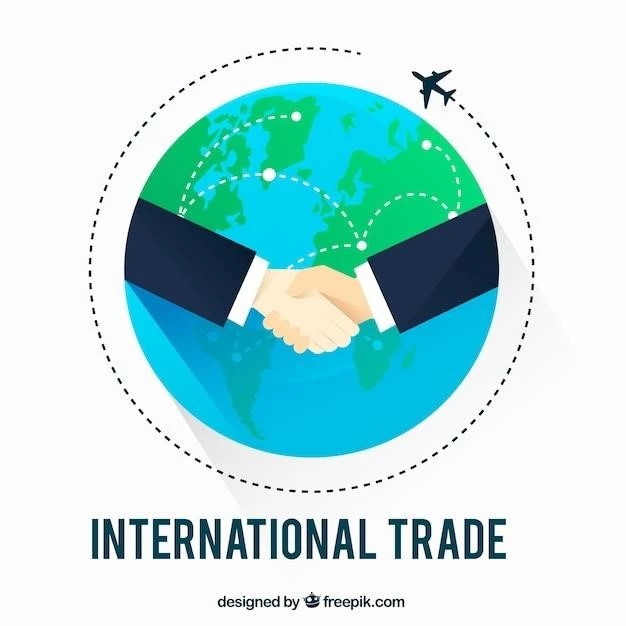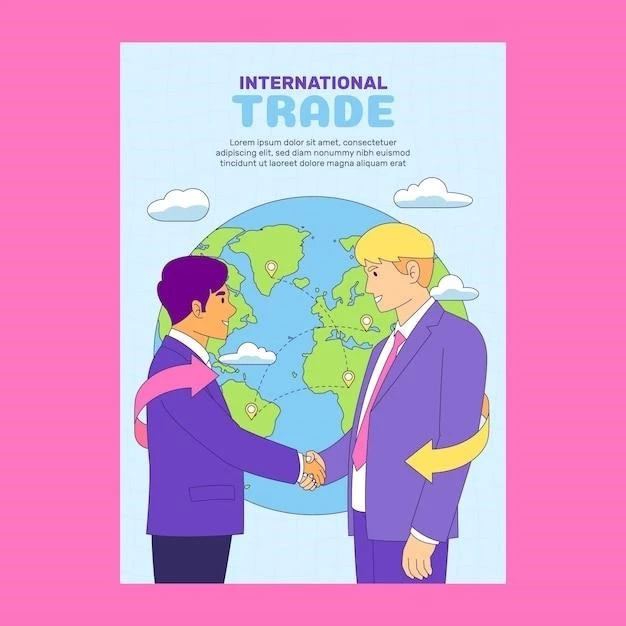In an increasingly interconnected world‚ the significance of international cooperation and diplomacy has never been more profound. As nations navigate a complex web of global challenges‚ from climate change and pandemics to economic instability and security threats‚ the need for effective collaboration and dialogue becomes paramount. This article delves into the multifaceted realm of international cooperation and diplomacy‚ exploring its evolution‚ key principles‚ and the indispensable role it plays in fostering a more peaceful and prosperous global order.
The Essence of International Cooperation and Diplomacy
At its core‚ international cooperation embodies the concerted efforts of states and other actors in the international system to address common challenges and pursue shared goals. It is predicated on the understanding that many global issues transcend national borders and necessitate collective action. Diplomacy‚ on the other hand‚ serves as the primary instrument through which this cooperation is facilitated. It encompasses the art and practice of communication‚ negotiation‚ and representation between states and other international actors.

Historical Evolution
The roots of international cooperation and diplomacy can be traced back centuries‚ with early examples found in ancient treaties and alliances. However‚ the modern system of international relations‚ characterized by formalized diplomatic protocols and institutions‚ began to emerge in the aftermath of the Peace of Westphalia in 1648. This landmark treaty‚ which ended the Thirty Years’ War‚ established the principle of state sovereignty and laid the groundwork for a more structured international order.
The 19th and 20th centuries witnessed significant developments in international cooperation‚ driven in part by the increasing interconnectedness of the world. The horrors of World War I underscored the devastating consequences of unchecked nationalism and spurred efforts to create a more stable and peaceful international system. This led to the establishment of the League of Nations‚ the first global intergovernmental organization dedicated to promoting international cooperation and preventing future wars. While the League ultimately failed to prevent World War II‚ its aspirations paved the way for the creation of the United Nations (UN) in 1945.
The United Nations and the Post-War Order
The founding of the UN marked a pivotal moment in the history of international cooperation. The UN Charter‚ with its emphasis on collective security‚ human rights‚ and the peaceful settlement of disputes‚ provided a comprehensive framework for international relations. Over the decades‚ the UN has played a central role in addressing a wide range of global challenges‚ from peacekeeping and humanitarian assistance to promoting sustainable development and combating climate change.

Key Principles of International Cooperation
Several fundamental principles underpin effective international cooperation:
- Sovereignty and Non-Interference: States are recognized as sovereign entities with the right to determine their own internal affairs without external interference.
- Mutual Respect and Equality: All states‚ regardless of their size or power‚ are considered equal members of the international community and are entitled to respect for their sovereignty and territorial integrity.
- Peaceful Settlement of Disputes: States are obligated to resolve disputes through peaceful means‚ such as negotiation‚ mediation‚ or arbitration‚ rather than resorting to the use of force.
- Good Faith and Treaty Obligations: States are expected to abide by their international commitments and act in good faith in their dealings with other states.
Contemporary Challenges and Opportunities
The 21st century presents a myriad of complex challenges that necessitate even greater international cooperation. Globalization‚ technological advancements‚ and the rise of non-state actors have transformed the international landscape‚ blurring traditional boundaries and creating new opportunities and risks. Climate change‚ pandemics‚ terrorism‚ and cybercrime are just a few examples of transnational threats that demand collaborative solutions.
The Role of Diplomacy in the 21st Century
In this increasingly interconnected and complex world‚ diplomacy plays an even more crucial role in fostering international cooperation. Diplomats serve as critical conduits for communication‚ negotiation‚ and bridge-building between states. They work tirelessly to advance their countries’ interests while also seeking common ground and promoting understanding between nations.
Conclusion
International cooperation and diplomacy are not merely abstract concepts; they are essential tools for addressing the world’s most pressing challenges and building a more peaceful and prosperous future. As we navigate the complexities of the 21st century‚ strengthening international institutions‚ upholding the principles of international law‚ and fostering a spirit of collaboration will be paramount in ensuring a more just‚ equitable‚ and sustainable world for all.










